Are you ready to bring home a golden retriever puppy?
Raising a golden retriever puppy is a rewarding experience, but it requires careful preparation and commitment. These adorable furballs require love, attention, and proper care to ensure their happy and healthy development.
In this article, we will guide you through essential tips for golden retriever puppy care, from crate training to socialization, and everything in between. Whether you’re a first-time puppy parent or looking to improve your puppy-raising game, we’ve got you covered!
Key Takeaways:
- Preparing yourself and your home for a golden retriever puppy
- The importance of early training and socialization
- Providing mental and physical stimulation for your puppy
- Caring for your golden retriever puppy’s health and grooming needs
- Navigating the different developmental phases of a golden retriever puppy
The Background of Golden Retrievers
Golden Retrievers, a beloved breed known for their intelligence and friendly nature, have a rich history that dates back to the 1800s. Originally bred in Scotland, they were specifically created as gundogs to assist in hunting and retrieving fowl.
Golden Retrievers were developed by crossing different breeds, including the now-extinct Tweed Water Spaniel and the Yellow Retriever (which is now known as the Flat-Coated Retriever). This selective breeding aimed to create a versatile and trainable dog that could excel in both field work and family companionship.
With their innate ability to retrieve game from both land and water, Golden Retrievers quickly gained popularity among hunters. They displayed exceptional tracking skills, a gentle temperament, and a strong work ethic.
In 1925, the Golden Retriever breed was officially recognized by the American Kennel Club (AKC), solidifying their place as a distinct and highly-regarded breed in the United States. Since then, Golden Retrievers have become one of the most popular dog breeds, cherished for their loyalty, affectionate nature, and versatility in various roles, including search and rescue, therapy work, and as beloved family pets.
“Golden Retrievers have a long and storied history, rooted in their hunting and retrieving abilities. But their gentle and loving temperament has also made them wonderful companion animals and family pets.”
The Popularity of Golden Retrievers
The rise in the popularity of Golden Retrievers can be attributed to various factors, including their appearance in popular culture and the influence of notable individuals. One such influential figure is President Gerald Ford, who owned a Golden Retriever named Liberty during his term in office. Liberty became a well-known canine ambassador for the breed and contributed to their widespread recognition and adoration.
Golden Retrievers continue to capture the hearts of dog lovers around the world. Their friendly and gentle demeanor, combined with their intelligence and versatility, make them an ideal choice for families, working roles, and as loyal companions.
| Breed Origin | Recognized by AKC | Temperament |
|---|---|---|
| Scotland, 1800s | 1925 | Friendly, Gentle, Intelligent |
Characteristics of Golden Retrievers
Golden Retrievers are beloved for their distinctive characteristics that make them a popular choice for families and individuals alike. From their stunning golden coats to their loyal and affectionate nature, Golden Retrievers possess a unique charm that sets them apart.
Golden Retriever Coat
The hallmark feature of a Golden Retriever is their luxurious golden coat, which can vary in shades from light to dark. Their double coat is dense and waterproof, helping to protect them in various weather conditions. However, this also means that Golden Retrievers shed heavily, especially during shedding seasons. Regular grooming and brushing are essential to keep their coat healthy and maintain their beautiful appearance.
Golden Retriever Characteristics
- Loyal: Golden Retrievers are known for their unwavering loyalty to their families. They form strong bonds and will always be by your side, offering comfort and companionship.
- Affectionate: These dogs have a naturally loving and gentle nature. They thrive on human contact and enjoy being part of family activities.
- Playful: Golden Retrievers have a playful and enthusiastic personality. They love to engage in games and outdoor activities, making them perfect companions for active individuals and families.
- Gentle: Despite their large size, Golden Retrievers have a gentle nature. They are known for their patience, especially around children, making them a popular family dog.
Golden Retrievers also possess a unique quality that sets them apart from other breeds – their puppy-like appearance even as adults. Their expressive eyes and wagging tails make them irresistibly adorable.
Due to their high energy levels, Golden Retrievers require regular exercise and activity to keep them physically and mentally stimulated. Daily walks, playtime, and outdoor adventures are essential to meet their exercise needs and ensure their well-being.
| Characteristic | Description |
|---|---|
| Loyal | Golden Retrievers form strong bonds and are fiercely loyal to their families. |
| Affectionate | These dogs have a naturally loving and gentle nature. |
| Playful | Golden Retrievers have a playful and enthusiastic personality. |
| Gentle | Despite their large size, Golden Retrievers have a gentle nature. |
Ideal Living Environment for Golden Retrievers
Golden Retrievers thrive in homes that provide them with a suitable living environment. They are active and energetic dogs that require ample space to roam and explore. Access to outdoor areas where they can run and play is essential for their physical and mental well-being.
Regular exercise is crucial for Golden Retrievers to maintain a healthy lifestyle. Daily walks and engaging activities help them burn off excess energy and prevent boredom. These activities also provide an opportunity for them to socialize with other dogs and people, which is beneficial for their overall development and happiness.
“Golden Retrievers are known for their friendly and sociable nature. They can adapt well to living with other dogs, pets, and children,” says Dr. Emily Anderson, a veterinarian with expertise in Golden Retriever care. However, they may develop separation anxiety if left alone for long periods. It’s important to ensure that they have companionship and stimulation to keep them happy and relaxed.”
Creating a stimulating environment for Golden Retrievers is essential to prevent behavioral issues. Providing them with interactive toys, puzzles, and games that challenge their problem-solving skills will help keep them mentally sharp and entertained.
Key Points:
- Golden Retrievers thrive in homes with ample space and access to outdoor areas.
- Regular exercise, including daily walks and engaging activities, is important for their well-being.
- They can adapt well to living with other dogs, pets, and children.
- Separation anxiety can be a concern if they are left alone for extended periods.
- Stimulating their minds with interactive toys and puzzles is important for their mental well-being.
By providing a suitable living environment that meets their physical, social, and mental needs, you can ensure that your Golden Retriever thrives and leads a happy and fulfilling life.
Golden Retriever Exercise Needs
| Exercise Requirement | Description |
|---|---|
| Daily Walks | Golden Retrievers require at least one hour of brisk walking every day to fulfill their exercise needs. |
| Active Playtime | In addition to walks, they need engaging activities such as fetch, swimming, or agility training to burn off excess energy. |
| Mental Stimulation | Providing interactive toys, puzzles, and training sessions will keep their minds sharp and prevent boredom. |
| Socialization | Regular socialization with other dogs and people is essential for their overall development and well-being. |
How to Care for Your Golden Retriever Puppy
When you bring home a golden retriever puppy, it’s crucial to prioritize their health and well-being. Follow these golden retriever puppy care tips to ensure your furry friend grows into a happy and healthy adult.
Schedule Regular Veterinary Check-ups
Regular visits to the veterinarian are essential for monitoring your golden retriever puppy’s overall health. During these check-ups, your vet can provide important vaccinations and discuss spaying/neutering options. Additionally, keeping an eye on their joint health and screening for heart disease is crucial since golden retrievers may be prone to these conditions.
Groom Your Puppy Regularly
Maintaining proper grooming habits is important for a golden retriever puppy’s hygiene and overall well-being. This includes regular nail trimming and brushing their luxurious coat to prevent matting and minimize shedding. Remember to clean their ears and check for any signs of redness or infection. Dental care should also be a part of your grooming routine.
Establish a Daily Puppy Training Schedule
Consistency is key when it comes to training your golden retriever puppy. Establishing a daily schedule will help them understand what is expected of them and promote good behavior. Focus on basic commands such as sit, stay, and recall. Using positive reinforcement, such as treats and praise, will motivate your puppy to learn and obey.
Encourage Proper Socialization
Socializing your golden retriever puppy from an early age is vital for their development. Expose them to various people, animals, and environments to build their confidence and teach them appropriate behavior. Joining puppy socialization classes or organizing playdates with other well-behaved dogs can help your puppy become a sociable and well-rounded adult.
Proper healthcare and training are essential for raising a happy and healthy golden retriever puppy.”
Key Golden Retriever Puppy Care Tips:
- Schedule regular veterinary check-ups to monitor their health and prevent potential issues.
- Maintain a regular grooming routine, including brushing, nail trimming, and dental care.
- Establish a daily puppy training schedule to teach obedience and good behavior.
- Socialize your golden retriever puppy by exposing them to different people, animals, and environments.
By following these golden retriever puppy care tips, you can provide the best possible care for your furry companion and lay the foundation for a happy and fulfilling life together.
| Golden Retriever Puppy Care Tips | Details |
|---|---|
| Veterinary Check-ups | Regular visits to monitor health and receive vaccinations. |
| Grooming | Regular brushing, nail trimming, and dental care. |
| Puppy Training | Establish a daily schedule for obedience training. |
| Socialization | Expose your puppy to different environments and social settings. |
Puppy Trainer’s Advice for Raising a Well-Behaved Golden Retriever
When it comes to raising a well-behaved Golden Retriever, early training and consistency are key. Start training your puppy as soon as you bring them home, and establish a daily training schedule to ensure regular practice.
One of the most effective training methods for Golden Retrievers is positive reinforcement. Use treats and praise to reward good behavior, which will motivate your puppy to learn and obey commands. By focusing on positive reinforcement, you’ll create a strong bond with your puppy based on trust and rewards.
Proper socialization is essential for a well-behaved Golden Retriever. Teach your puppy how to greet new people and dogs politely, emphasizing calm and controlled behavior. This can be achieved through controlled introductions and supervised interactions with other friendly dogs and individuals.
In addition to basic obedience training, it’s important to focus on exercises that promote calmness. Teach your puppy to stay calm in various situations, such as when guests arrive or when encountering new environments. This can be done through activities like “sit-stay” or “down-stay” exercises, gradually increasing the distractions to reinforce their self-control.
Leash training is another vital aspect of Golden Retriever obedience training. Teach your puppy to walk nicely on a leash without pulling. Start with short walks and gradually increase the duration and distance. Use positive reinforcement techniques to reward them for walking politely by your side.
Mental stimulation is equally important for the overall well-being of your Golden Retriever. Engage in different activities like puzzle toys, interactive games, and obedience exercises to keep their minds challenged and prevent boredom.
Remember to meet your puppy’s grooming needs from a young age. Introduce them to handling, such as brushing, nail trimming, and ear cleaning, in a positive and gentle manner. This will make grooming sessions a positive experience and help your puppy feel comfortable and relaxed.
By following these puppy training tips and focusing on Golden Retriever obedience training, you’ll be on your way to raising a well-behaved and happy Golden Retriever who will be a cherished member of your family.
The Angel Phase (2-6 months)
During the Angel Phase, which is from 2 to 6 months, training and socialization are key. This is a crucial period in your golden retriever puppy’s development, and it’s important to provide them with the necessary experiences and skills to become a well-rounded adult dog.
One important aspect of the Angel Phase is socialization. Golden retriever socialization is the process of exposing your puppy to various environments, people, animals, and stimuli in a positive and controlled manner. This helps them develop confidence, adaptability, and good behavior.
To facilitate socialization, consider enrolling your golden retriever puppy in group-based Puppy Kindergarten and basic obedience classes. These classes offer a structured environment where your puppy can interact with other puppies, learn basic commands, and develop important social skills. They also provide an opportunity for professional guidance and support in your puppy’s golden retriever puppy development journey.
Establishing a working relationship and bond with your puppy is essential during this phase. Spend quality time together, engage in play sessions, and practice obedience commands. Consistency and positive reinforcement are key to effectively communicate with your puppy and shape their behavior.
Managing their energy levels is important during the Angel Phase. Provide appropriate outlets for physical exercise and mental stimulation. Engage in activities such as fetch, puzzle toys, and short training sessions to keep your puppy engaged and prevent boredom.
During this phase, it’s crucial to help your puppy overcome fears and expose them to different sounds and movements. This helps build their resilience and confidence. Gradually introduce them to new experiences and environments, ensuring they have positive associations.
“The Angel Phase is a critical period in a golden retriever puppy’s life. Through socialization, training, and positive experiences, we can set a solid foundation for their future behavior and well-being.”
Teenage Rebellion Phase (6-18 months)
During the Teenage Rebellion Phase, your golden retriever will go through significant physical and behavioral changes as they transition from puppyhood to adolescence. This phase typically lasts from 6 to 18 months and can be challenging for both you and your furry friend.
Building on the foundation established during the Angel Phase, it’s important to continue providing your golden retriever with proper guidance, training, and outlets for their energy.
Managing Changing Hormones:
As your golden retriever enters the teenage phase, their hormones will start to fluctuate, which can result in changes in behavior. They may become more independent, stubborn, or even test boundaries. It’s crucial to remain calm, patient, and consistent in your training approach.
Dealing with Mouthiness:
During this phase, your golden retriever may go through a stage where they explore the world with their mouth. It’s essential to redirect this behavior onto appropriate chew toys and provide them with plenty of mental and physical stimulation to help curb their need to chew.
Training and Reinforcement:
Consistency and positive reinforcement are key during the teenage rebellion phase. Continue with training exercises to reinforce obedience and manners. Focus on teaching them self-control, rewarding good behavior, and redirecting negative behaviors. It’s important to reinforce their coping skills during fear stages and help them overcome any anxieties they may have.
Expose your golden retriever to different environments, experiences, and playmates. This will help them become well-rounded and adaptable as they transition into adulthood. Gradually introduce them to new situations, such as unfamiliar sounds, sights, and people, to build their confidence and reduce any fear or anxiety they may have.
Summary:
The teenage rebellion phase can be challenging, but with consistent training, patience, and understanding, you can guide your golden retriever through this developmental stage. Remember to provide outlets for their energy, manage changing hormones, reinforce training exercises, and expose them to new experiences. By doing so, you will help them mature into a well-behaved and confident adult golden retriever.
| Key Points for the Teenage Rebellion Phase |
|---|
| Build on the foundation established during the Angel Phase |
| Manage changing hormones with patience and consistency |
| Redirect mouthiness onto appropriate chew toys |
| Continue training exercises and reinforce coping skills |
| Introduce new experiences and playmates |
Signs of Maturity Phase (18-24 months)
As your golden retriever enters the Signs of Maturity Phase, they are reaching their full physical and emotional development. This is an exciting time that signifies the transition from playful puppy to a well-rounded adult dog. During this phase, there are important factors to consider to ensure your golden retriever’s continued growth and well-being.
Training and Obedience
Training should remain a priority during the Maturity Phase. Reinforce the obedience skills your golden retriever has learned and introduce more advanced commands to further enhance their training. With consistency and positive reinforcement, your golden retriever will continue to excel in their behavior and responsiveness.
Diet and Nutrition
As your golden retriever continues to grow, their dietary needs will change. Consult with your veterinarian to adjust their diet based on their caloric requirements and nutritional needs. A balanced diet will support their physical development and maintain their optimal health.
Maintaining Grooming Routines
Regular grooming is essential to keep your golden retriever looking and feeling their best. Continue with grooming routines such as brushing their coat, cleaning their ears, and trimming their nails. This not only promotes their physical well-being but also strengthens the bond between you and your furry companion.
Weight Management
During the Maturity Phase, it’s important to monitor your golden retriever’s weight and ensure they maintain a healthy body condition. Obesity can lead to various health issues, including joint problems and reduced mobility. Consult your veterinarian for guidance on maintaining an appropriate weight for your golden retriever.
| Maturity Phase Guidelines | Description |
|---|---|
| Training | Continuously reinforce obedience skills and introduce advanced commands. |
| Diet and Nutrition | Consult with your veterinarian to adjust their diet based on their caloric needs. |
| Grooming | Maintain regular grooming routines to keep your golden retriever looking and feeling their best. |
| Weight Management | Monitor their weight and ensure they maintain a healthy body condition. |
As your golden retriever matures, embrace their newfound personality and traits. Enjoy the companionship and love they bring to your everyday life. With proper care and attention, your golden retriever will continue to thrive and be a cherished member of your family.
Conclusion
Raising a golden retriever puppy requires careful preparation, unwavering commitment, and consistent training. By providing a loving and structured environment, socializing your puppy, and meeting their physical and mental needs, you are setting the foundation for a well-rounded and happy adult dog.
A crucial aspect of golden retriever puppy care is establishing a routine from the very beginning. This includes crate training, potty training, and obedience training. Consistency and patience are key when it comes to teaching your golden retriever puppy the rules of the house and basic commands.
Additionally, socializing your golden retriever puppy is vital for their overall development. Introducing them to various people, animals, and environments will help them become confident and well-adjusted. Engaging in regular exercise and providing mental stimulation through interactive play and puzzle toys will keep their energetic nature fulfilled.
With proper care and training, your golden retriever puppy will grow into a loyal, affectionate, and well-behaved companion that brings endless joy and companionship to your family. So, embrace the journey of raising a golden retriever puppy and enjoy the bond that will last a lifetime.
FAQ
What should I consider before bringing home a golden retriever puppy?
Before bringing home a golden retriever puppy, consider if you can handle the responsibility and work involved in raising a puppy.
How should I crate train my golden retriever puppy?
To crate train your golden retriever puppy, gradually introduce them to the crate, make it cozy and comfortable, and use positive reinforcement to associate the crate with positive experiences.
When should I start training my golden retriever puppy?
It’s important to start training your golden retriever puppy as early as possible. Enroll them in puppy socialization classes and seek the help of a professional trainer.
How can I potty train my golden retriever puppy?
Potty training your golden retriever puppy requires consistency and patience. Take them outside frequently, use positive reinforcement, and establish a routine.
How should I socialize my golden retriever puppy?
Socialize your golden retriever puppy by exposing them to various people, animals, and environments. Gradually introduce them to new experiences and rewards positive behavior.
What type of exercise does a golden retriever puppy need?
Golden retriever puppies require regular exercise to help burn off energy and maintain a healthy weight. Daily walks, play sessions, and engaging activities are essential.
What should I feed my golden retriever puppy?
Feed your golden retriever puppy a well-balanced diet that is appropriate for their age and size. Consult with your veterinarian for specific nutritional recommendations.
How should I groom my golden retriever puppy?
Regular grooming for your golden retriever puppy includes brushing their coat, trimming their nails, and maintaining dental hygiene. Establish a grooming routine from a young age.
What are common health concerns for golden retriever puppies?
Golden retriever puppies may be prone to joint issues and heart disease. Regular veterinary check-ups and monitoring their health are important for early detection and prevention.
How can I train my golden retriever puppy to be well-behaved?
Use positive reinforcement and rewards-based training methods to teach your golden retriever puppy obedience and good behavior. Consistency, patience, and professional guidance can be beneficial.



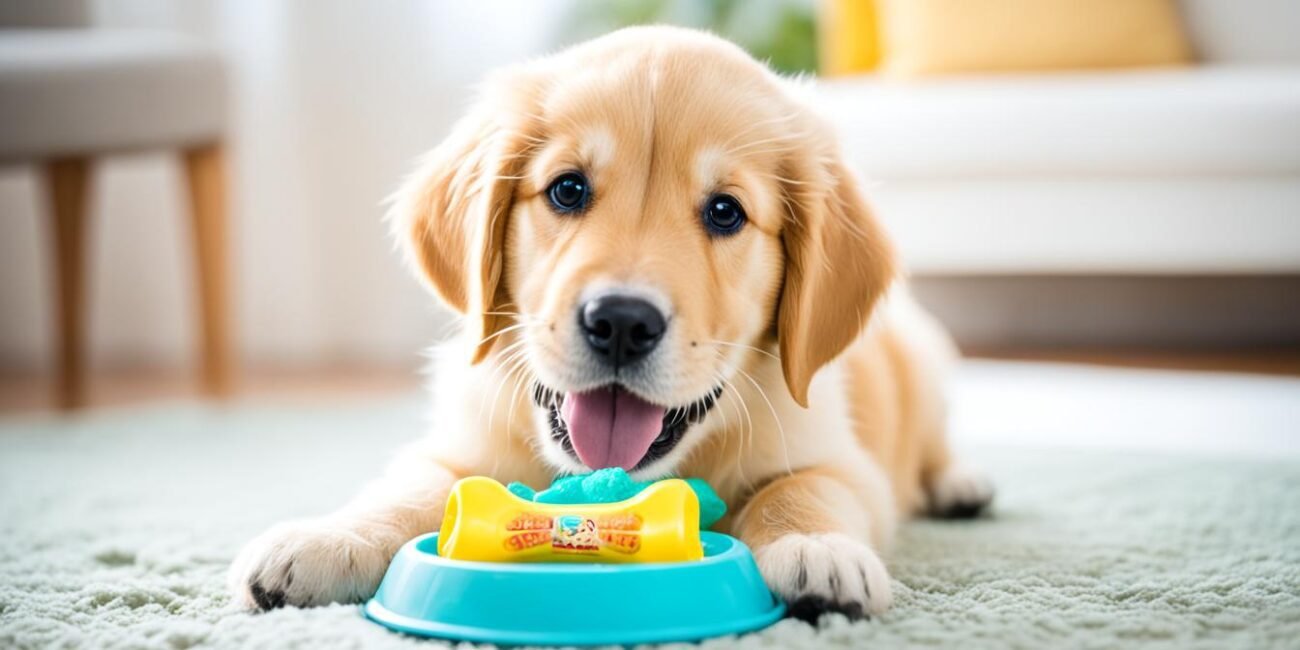


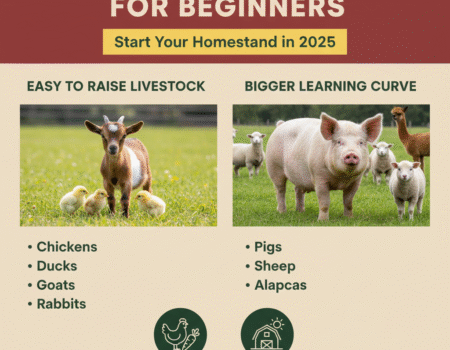
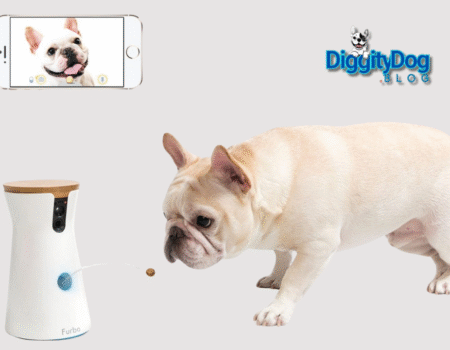
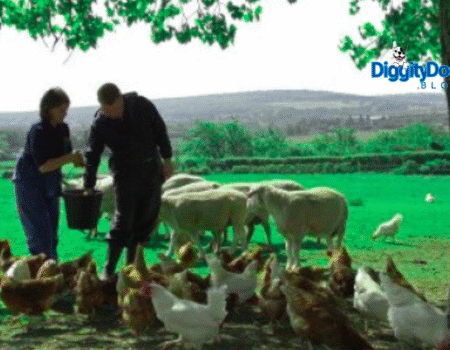
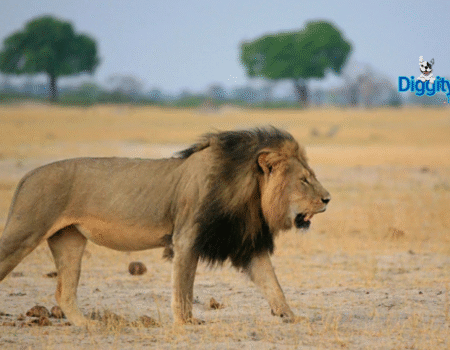
No Comment! Be the first one.